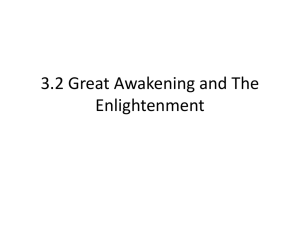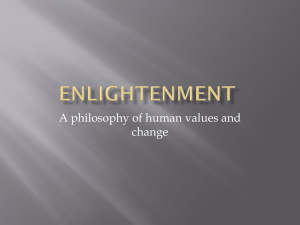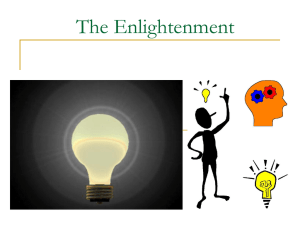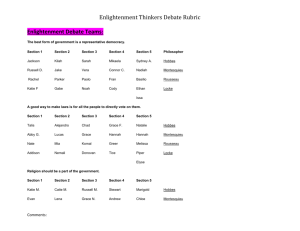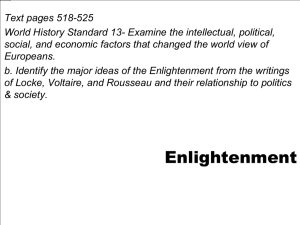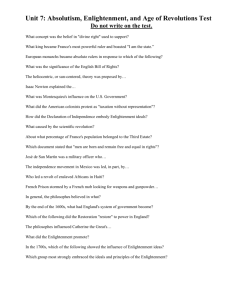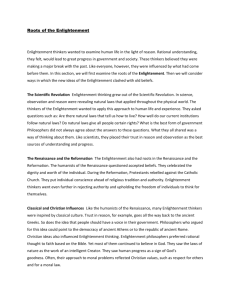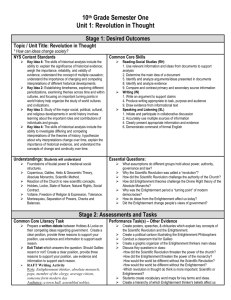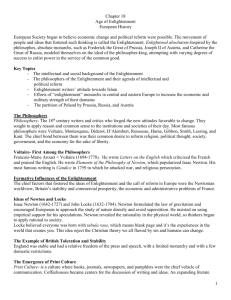Scientific Revolution and Enlightenment Review
advertisement
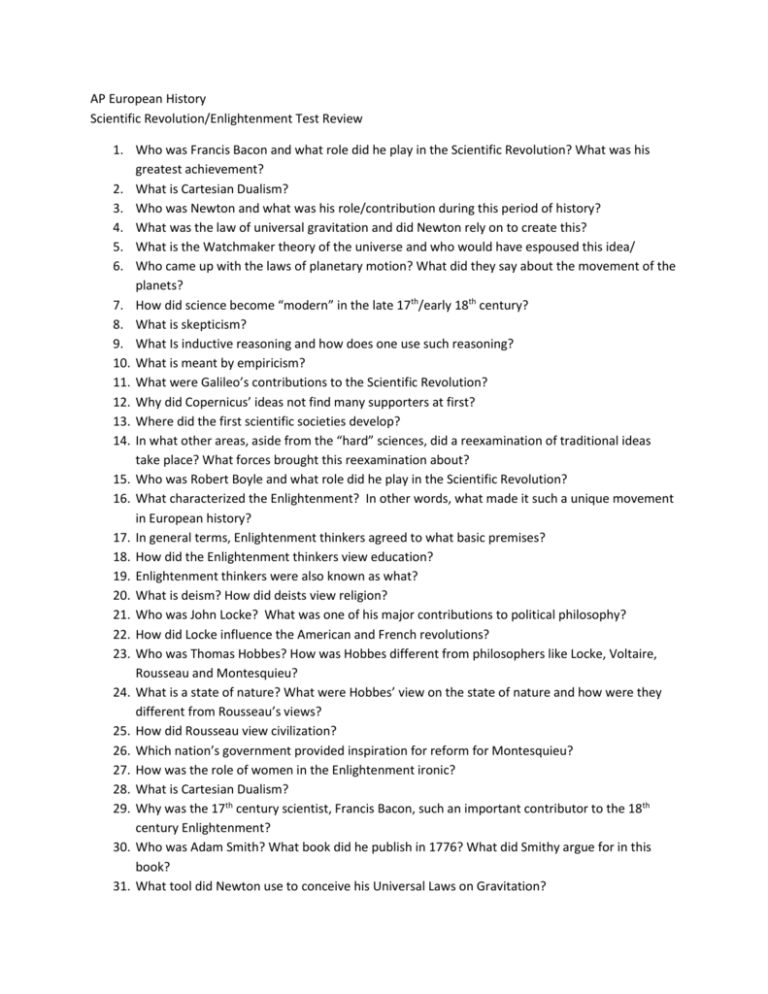
AP European History Scientific Revolution/Enlightenment Test Review 1. Who was Francis Bacon and what role did he play in the Scientific Revolution? What was his greatest achievement? 2. What is Cartesian Dualism? 3. Who was Newton and what was his role/contribution during this period of history? 4. What was the law of universal gravitation and did Newton rely on to create this? 5. What is the Watchmaker theory of the universe and who would have espoused this idea/ 6. Who came up with the laws of planetary motion? What did they say about the movement of the planets? 7. How did science become “modern” in the late 17th/early 18th century? 8. What is skepticism? 9. What Is inductive reasoning and how does one use such reasoning? 10. What is meant by empiricism? 11. What were Galileo’s contributions to the Scientific Revolution? 12. Why did Copernicus’ ideas not find many supporters at first? 13. Where did the first scientific societies develop? 14. In what other areas, aside from the “hard” sciences, did a reexamination of traditional ideas take place? What forces brought this reexamination about? 15. Who was Robert Boyle and what role did he play in the Scientific Revolution? 16. What characterized the Enlightenment? In other words, what made it such a unique movement in European history? 17. In general terms, Enlightenment thinkers agreed to what basic premises? 18. How did the Enlightenment thinkers view education? 19. Enlightenment thinkers were also known as what? 20. What is deism? How did deists view religion? 21. Who was John Locke? What was one of his major contributions to political philosophy? 22. How did Locke influence the American and French revolutions? 23. Who was Thomas Hobbes? How was Hobbes different from philosophers like Locke, Voltaire, Rousseau and Montesquieu? 24. What is a state of nature? What were Hobbes’ view on the state of nature and how were they different from Rousseau’s views? 25. How did Rousseau view civilization? 26. Which nation’s government provided inspiration for reform for Montesquieu? 27. How was the role of women in the Enlightenment ironic? 28. What is Cartesian Dualism? 29. Why was the 17th century scientist, Francis Bacon, such an important contributor to the 18th century Enlightenment? 30. Who was Adam Smith? What book did he publish in 1776? What did Smithy argue for in this book? 31. What tool did Newton use to conceive his Universal Laws on Gravitation? 32. What does it mean to be “enlightened” in the context of the 18th century? 33. What were monarchs called who embraced Enlightenment ideas in their rule? Who were some of these monarchs and from which nations did they hail? 34. What is skepticism and how did it contribute to the development of Enlightenment philosophy? 35. How were the Royal Society of London, the Academy of Sciences in France and the Encyclopedia similar and important developments of their respective periods in history? 36. How were Copernicus, Galileo, Voltaire and Locke similar? 37. What is deductive reasoning and which Enlightenment thinker championed its use? 38. What was the name of Newton’s greatest work? 39. In terms of the development of the Enlightenment, what role did the Scientific Revolution play? 40. Which philosopher would be most closely associated with the concept of pantheism? 41. For both Bacon and Locke, what was the source of truth? 42. What is the concept of relativism? 43. Who was Madame de Geoffrin? 44. What concept was Montesquieu advocating in his book, On the Spirit of the Laws (1748) that helped to promote limited government? 45. What does the term laissez-faire mean? 46. Who was Edmund Burke and what was his contribution to the Enlightenment?
